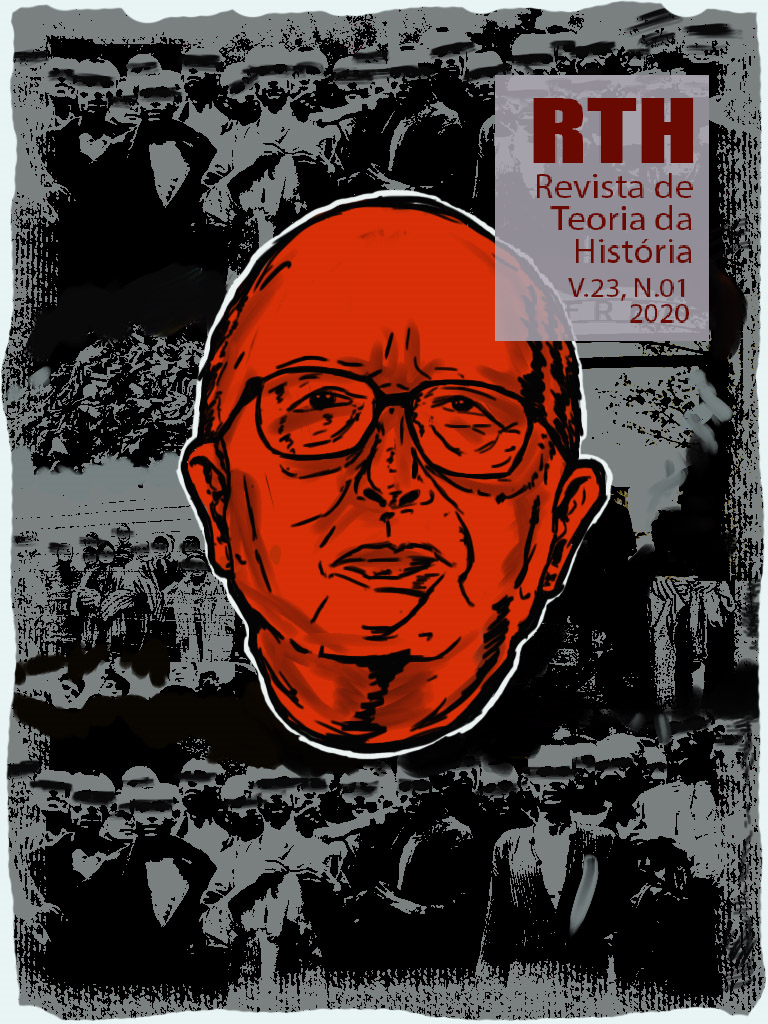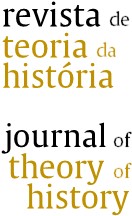Juízo e verdade histórica no discurso historiográfico
DOI:
https://doi.org/10.5216/rth.v23i1.64710Keywords:
Historiographical judgment; Value judgment; Dreyfus case; Sofri case; Eichmann caseAbstract
The article discusses the relationship between History and Justice, more precisely the comparison between the role of the historian and that of the judge in the process of knowing particular cases. Historiography is approached at various times, from Classical Antiquity to the present, analyzing Herodotus, Thucydides, Saint Augustin, Antônio Vieira and others. In this panoramic view, the focus is on the dilemma between value judgment and critical judgment, which leads us to the analysis of Historicism and the Annales movement, with an emphasis on the reflections of Lucien Febvre and Marc Bloch. The historian's judicial procedure in the field of events is valued, in contrast to historians, philosophers or linguists who reduce historical evidence to the domain of representations or versions of the same fact, doubting the veracity of actual events. We deepened this discussion in the approach of three major judgments: the Dreyfus case, in the 1890s, the Eichmann case, in 1960, and the Sofri case, in the 1990s. In this sense, we analyze critical texts of great importance, such those written by the dreyfusards, by Hanna Arendt and by Carlo Ginzburg in face of the cited judicial proceedings.
References
ARENDT, Hannah. Eichmann em Jerusalém: um relato sobre a banalidade do mal. São Paulo: Companhia das Letras, 2004.
BENASSAR, Bartolomé Modelos de la mentalidad inquisitorial: métodos de su pedagogia del miedo. In Ángel Alcalá (org.). Inquisición Espanola y mentalidad inquisitorial. Barcelona: Editorial Ariel, 1984, p. 174-184.
BLOCH, Marc. Los Reyes Taumaturgos. México: FCE, 1988.
BLOCH, Marc. A estranha derrota. Rio de Janeiro: Zahar, 2011.
CATROGA, Fernando. Ainda será a História Mestra da Vida? Porto Alegre. Estudos ibero-americanos, n. 2, p. 7-34, 2006.
CAIRE-JABINET, Marie-Paule. Introdução à Historiografia. Bauru: EDUSC, 2003.
CLARK, Stuart. French Historians and Early Modern Popular Culture. Past and Present. London, n.100, p. 62-99, 1983.
DUCLERC, Vincent. L'affaire Dreyfus: de l'affrontement des mémoires à la reconnaissance de l'histoire. In: Les guerres de mémoire. Paris: La Découverte, 2008.
FALCON, Francisco. Historicismo: novas e antigas questões. História revista. Rio de Janeiro, v. 7, 23-34, 2002.
FEBVRE, Lucien. Combates pela História (I). Lisboa: Biblioteca de Ciências Humanas, 1977.
FEBVRE, Lucien. O problema da incredulidade no século XVI. São Paulo: Cia das Letras, 2009.
FURET, François. Pensando a Revolução Francesa. Rio de Janeiro: Paz e Terra, 1989.
FUKS, Saul (org.) O Tribunal da História: julgando as controvérsias da história judaica. Rio de Janeiro: Imago, 2005.
GINZBURG, Carlo. O queijo e os vermes. São Paulo, Companhia das Letras, 1986.
GINZBURG, Carlo. Provas e possiblidades à margem de ‘Il ritorno de Martin Guerre’, de Natalie Zemon Davis. In: A microhistória e outros ensaios. São Paulo, Cia das Letras, 1992.
GINZBURG, Carlo. El juez y el historiador: consideraciones al margen del proceso Sofri. Madrid: Anaya, 1993.
GODECHOT, Jacques. As grandes correntes da historiografia da Revolução Francesa, de 1789 aos nossos dias. Revista de História (USP). São Paulo, n.39, vol. 80, 423-470, 1969.
GODECHOT, Jacques. As revoluções (1770-1789). São Paulo: Pioneira, 1976.
HARTOG, François. O espelho de Heródoto. São Paulo: Humanitas, 1999.
JONHSON, Paul. Racismo moderno, Dreyfus e os franceses. In: História dos Judeus. Rio de janeiro, Imago, 1995.
LABORIE, Pierre. Historiens sous haute surveillance. Paris. Esprit, 198 (1), 1994, pp. 36-49.
MARCOTTE-CHENARD, Sophie. What can we learn from Political History? Leo Strauss and Raymond Aron, Readers of Thucydides. Revierw of Politics, Cambridge, 57-66, 2018. Disponível em: https://doi.org/10.1017/S0034670517000778.
NAQUET, Emmanuel L'historiographie récente de l'affaire Dreyfus (2006-2009). Revue historique, n.656, p. 933-957, 2010. Disponível em: https://www.cairn.info/revue-historique-2010-4-page-933.htm.
PAXTON, Robert O. Vichy France. Old guard and New order 1940-4. New York: Knopf, 1972.
SCHAFF, Adam. História e verdade. São Paulo: Martins Fontes, 1978.SOUZA NETO, José Maria; SOUZA, J. Santos de. Santo Agostinho: enredo histórico e providencialismo. Revista de Teologia e Ciências da Religião (UNICAP). Recife, vol. 1, n.1, 2011.
ROLLEMBERG, Denise. Resistência: memória da ocupação nazista na França e na Itália. São Paulo: Alameda, 2016.
ROUSSEL, Patrick. Le « mythe » du Barbare. Déchéance d’un concept: époque contemporaine et Antiquité. Association Francophone pour le Savoir. Sherbrook (Canadá), 2011. Disponível em: https://www.academia.edu/6470387/Le_mythe_du_Barbare._Déchéance_d_un_concept_ époque_contemporaine_et_Antiquité?auto=download.
ROUSSO, Henry. Le syndrome de Vichy de 1944 à nos jours. 2aed. Paris: Seuil, 1990.
VIDAL-NAQUET, Pierre. Thèses sur le “révisionnisme”. Les assassins de la mémoire. In: Un Eichmann de papier et autres essais sur le révisionnisme. Paris: La Découverte, Poche/Essais, 2005.
VIEIRA, Antônio. História do Futuro. Lisboa: Imprensa Nacional, 1982.
WHELING, Arno. Em torno de Ranke: a questão da objetividade histórica. Revista de História (USP), São Paulo, v.46, n.93, 1973. Disponível em: http://www.revistas.usp. br/revhistoria/article/view/131940.
WIEDER, Thomas. La France de Vichy. Le Monde, 08.08.2008. Disponível em: http//www.lemonde.fr/livres/article/2008/08/08/la-france-de-vichy-par-thomas wieder_10815 86_ 3260.html.
YAMASHITA, Jougi Guimarães. As guerras de Marc Bloch: nacionalismo, memória e construção da subjetividade. Tese de Doutorado em História Social. Universidade Federal Fluminense. Niterói, 2015.
Downloads
Published
How to Cite
Issue
Section
License
The journal publishes only and exclusively original manuscripts. All rights reserved.
Licensed under a Creative Commons Attribution-NonCommercial-NoDerivatives 4.0 International License



